Nonprofit Spotlight: The Center for Black Excellence and Culture will ‘incubate genius’
Posted by Samantha Haas on Sunday, January 21st, 2024 at 5:30am.
Madison consistently ranks among the top cities in the nation to live. For what reasons? And for whom? Those answers vary depending on who you ask.
“As a lifelong Madisonian, I’ve noticed that this is a wonderful community but it's more wonderful for a certain group of people than it is for others,” said the Rev. Dr. Alex Gee, who serves as the lead pastor of Fountain of Life Covenant Church (Fountain of Life), founder and president of the Nehemiah Center for Urban Leadership Development (Nehemiah), and host of the podcast Black Like Me. He is also the founder and CEO of The Center for Black Excellence and Culture (The Center), a new nonprofit which is in the final stages of its fundraising campaign to create a welcoming and inspirational space for the Black community in Madison, Wisconsin, and beyond.
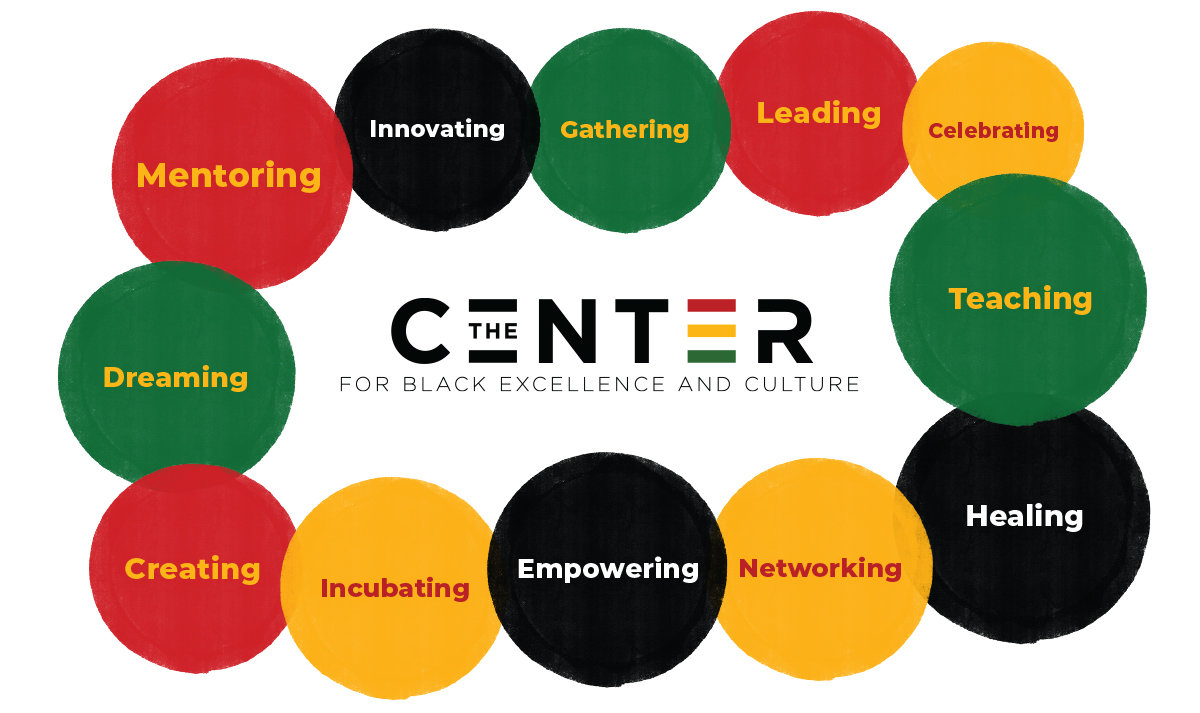
“We incubate genius. We incubate confidence,” Gee said. “That’s what we want to do. That’s what we want to grow.” The Center is just $3 million away from breaking ground on a debt-free, 3-story, 37,0000-square-foot building in spring 2024 near South Park Street.
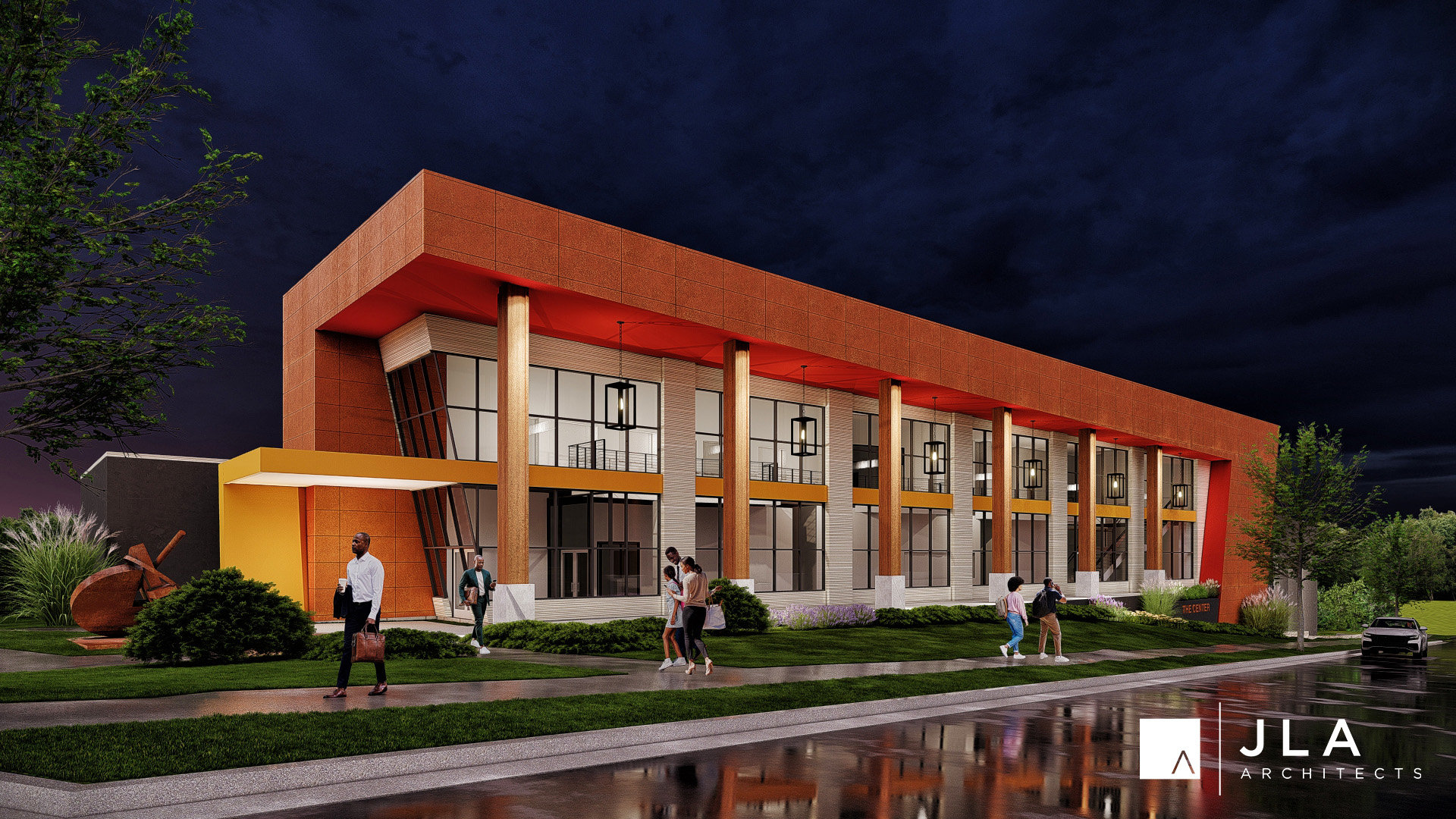
Although momentum for the project has been taking off since 2018, Gee, who just turned 60, said he has envisioned this space for nearly half of his life. In fact, there’s a recording of the moment he shared this dream in the 1990s. “I’m outside with a bullhorn,” he recalled. “I bring this young congregation outside, and I’m standing on the land that’s going to be The Center 30 years later, and I said, ‘we’re going to have performing spaces, athletic spaces, places to gather.’ The idea sort of laid dormant for awhile, but it’s been in my heart for more than three decades.”
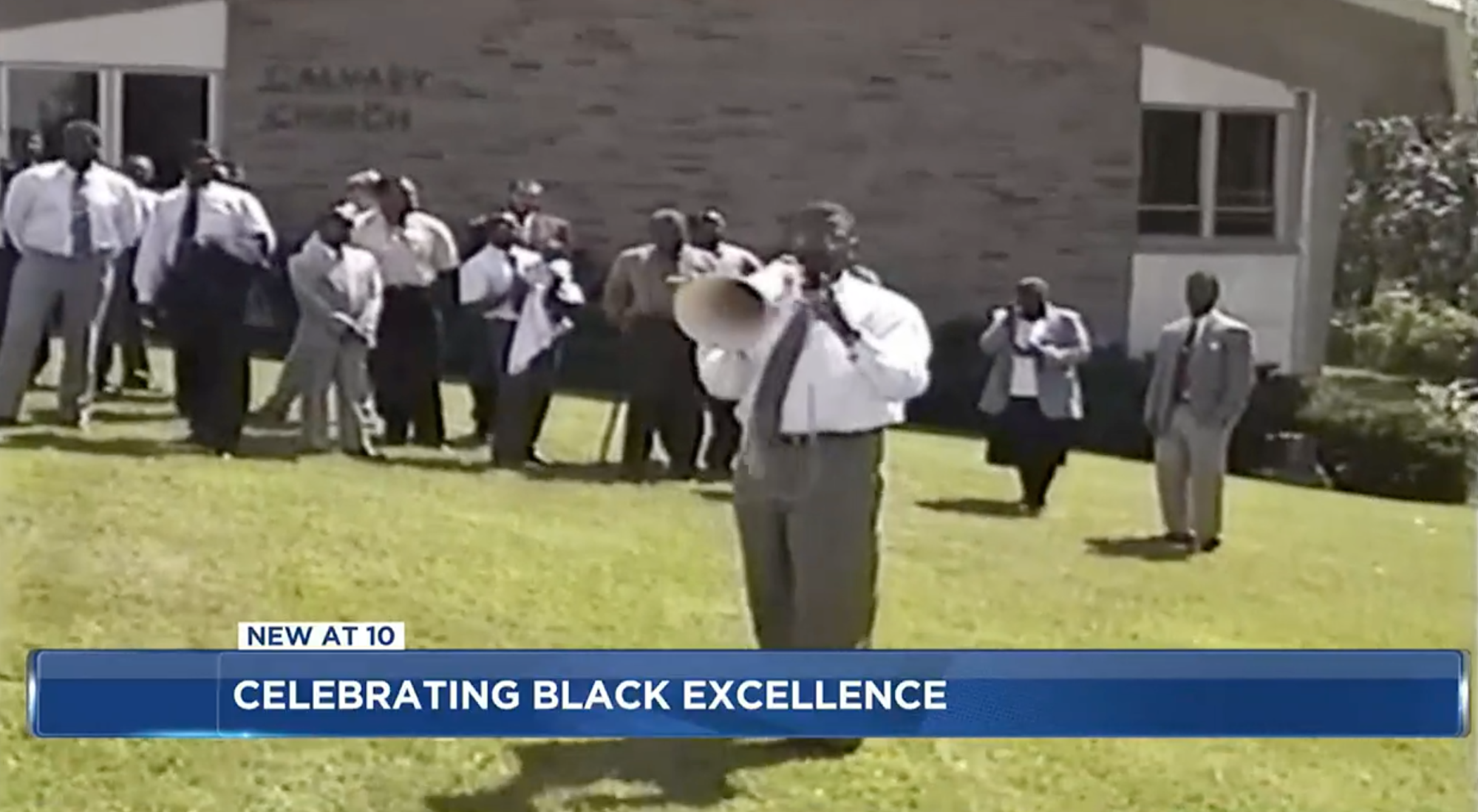
Gee said that talk of the brick-and-mortar building ramped up on the heels of “Justified Anger,” an article he wrote after Dane County’s 2013 “Race to Equity” report was published, highlighting the ”profound and persistent Black-white disparities in employment, income, wealth, education, criminal justice, health, and child welfare.” Justified Anger became an initiative of Nehemiah meant to “change the systems that hold racism and inequities in our society in place.”
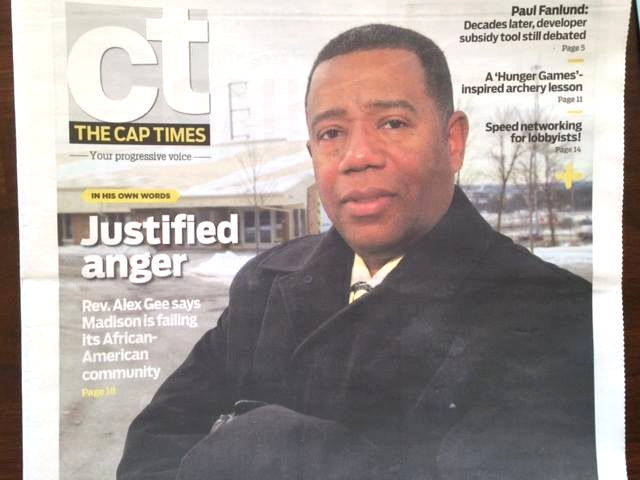
“Even before the pandemic, there was discussion around social determinants of health: our children not learning, adults not being promoted, redlining. And now you’re seeing the health implications of that kind of aggregate stress and isolation; it’s shortening our lives compared to our white counterparts. So now the issue is not just about access and opportunity. It’s now a matter of life or death. And that just hit me in my gut,” Gee said. “And as I watched what happened with Tamir Rice, George Floyd, and Breonna Taylor, I realized, you know what, if we ever needed a time to reinforce a sense of excellence and not just think about the worst of our community, it’s now.”
Is there a need for food pantries and social services? Yes. But Gee asked himself, and more than 700 Black community members, to think beyond the disparities and imagine a future that strengthens society. “What’s really going to turn this around? What would make Madison feel more like home?” These questions were met with more questions: Where can Black folks meet and connect? Where do we foster our entrepreneurial spirit? Where can our kids see role models? Where is our cultural grounding? Where do we go to feel celebrated, uplifted, refreshed, and reminded that we are strong and resilient?
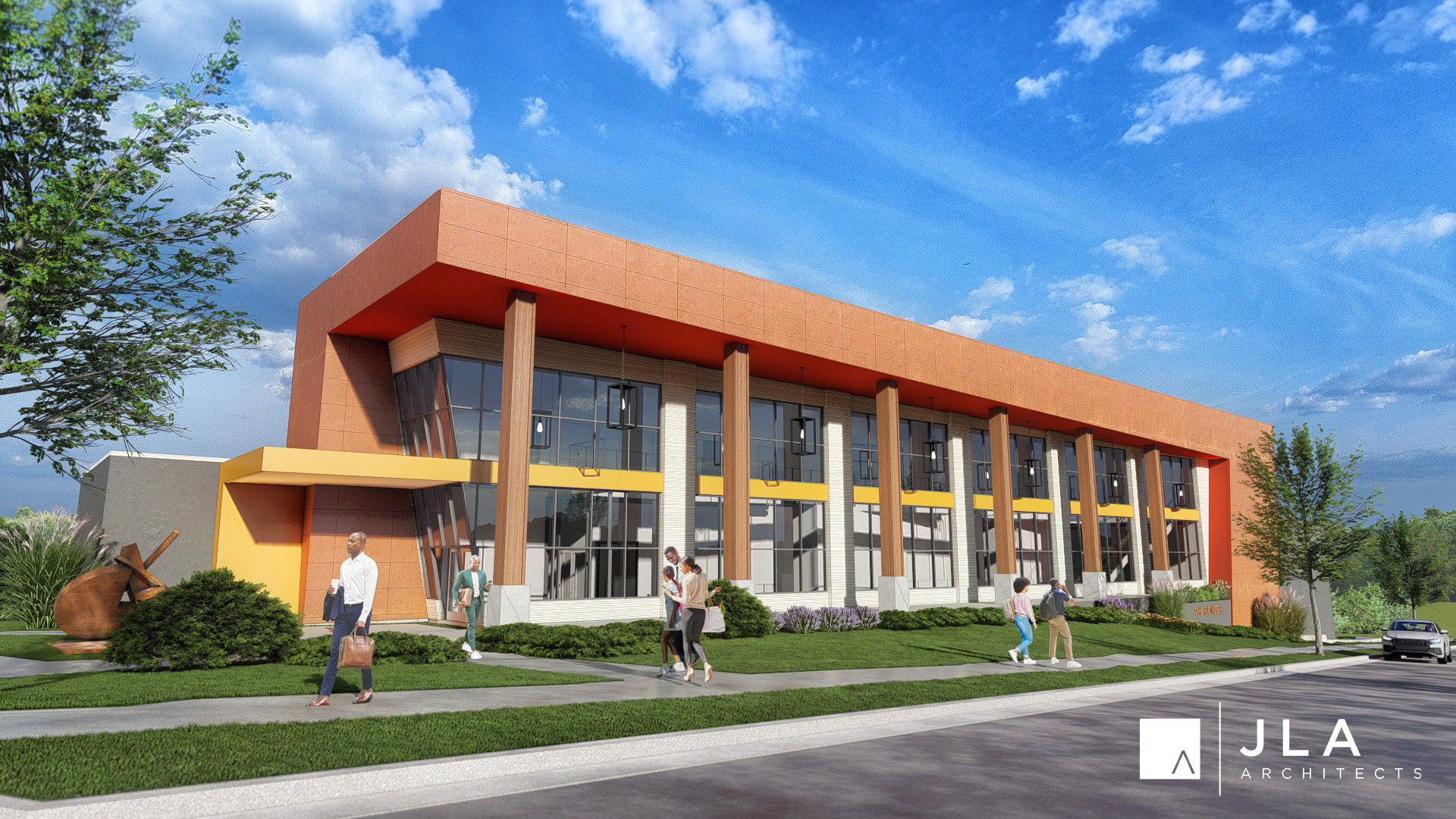
The answer? The Center for Black Excellence and Culture. A one-of-a-kind space in Dane County that will “normalize Black excellence, invention, innovation, creativity, wealth, and intelligence,” Gee said. “If we're going to give Madison or society our best, we need space to be our best.”
And the Center is surrounding itself with the very best. “Boldly built by Black minds, hearts, and hands, The Center is a community-wide effort to bring together a collective Black brilliance to affirm, inspire, and advance the Black community in Madison and beyond,” according to its website. That includes JLA Vice President Director of Team Development, Rafeeq Asad, one of several JLA designers on the project. “Rafeeq brings such a sense of the Black aesthetic (color, shape, materials) that exudes a sense of home and belonging and comfort that descendants of the African diaspora can relate to,” Gee said.
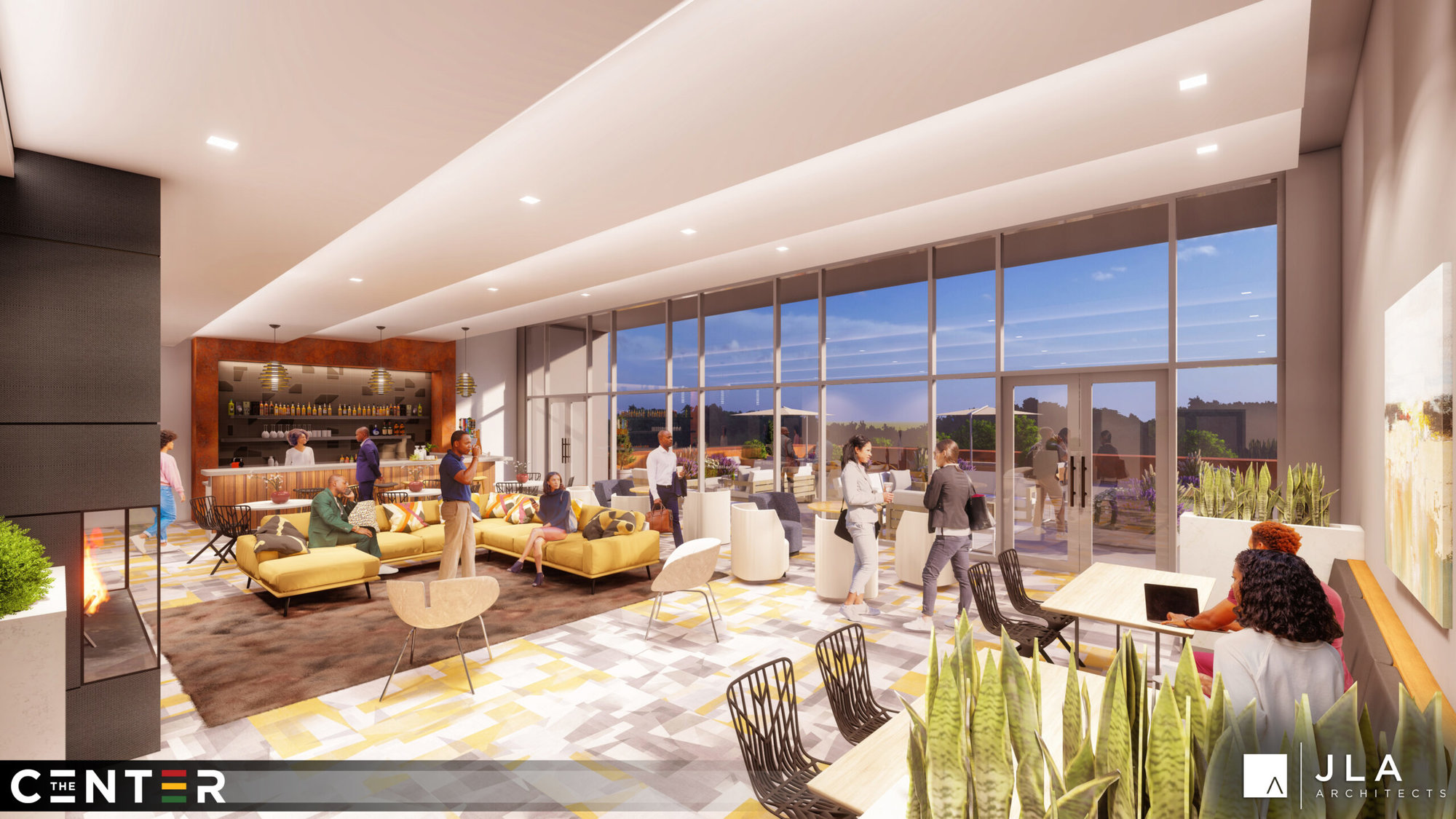
The website also features a sharp, stunning black background. Gee said when the website designers noted that they usually do a white background, his sister, the Rev. Lilada Gee, suggested that they try black because The Center wanted to make a statement and do something different. “They did it and they loved it, too,” he said. “So I respect the broader community that leaned in and said, ‘We’ve been trying to lead the way for years and look where we are. What do you want? What do you see? What do you think? What do you feel? And that has been very powerful.”
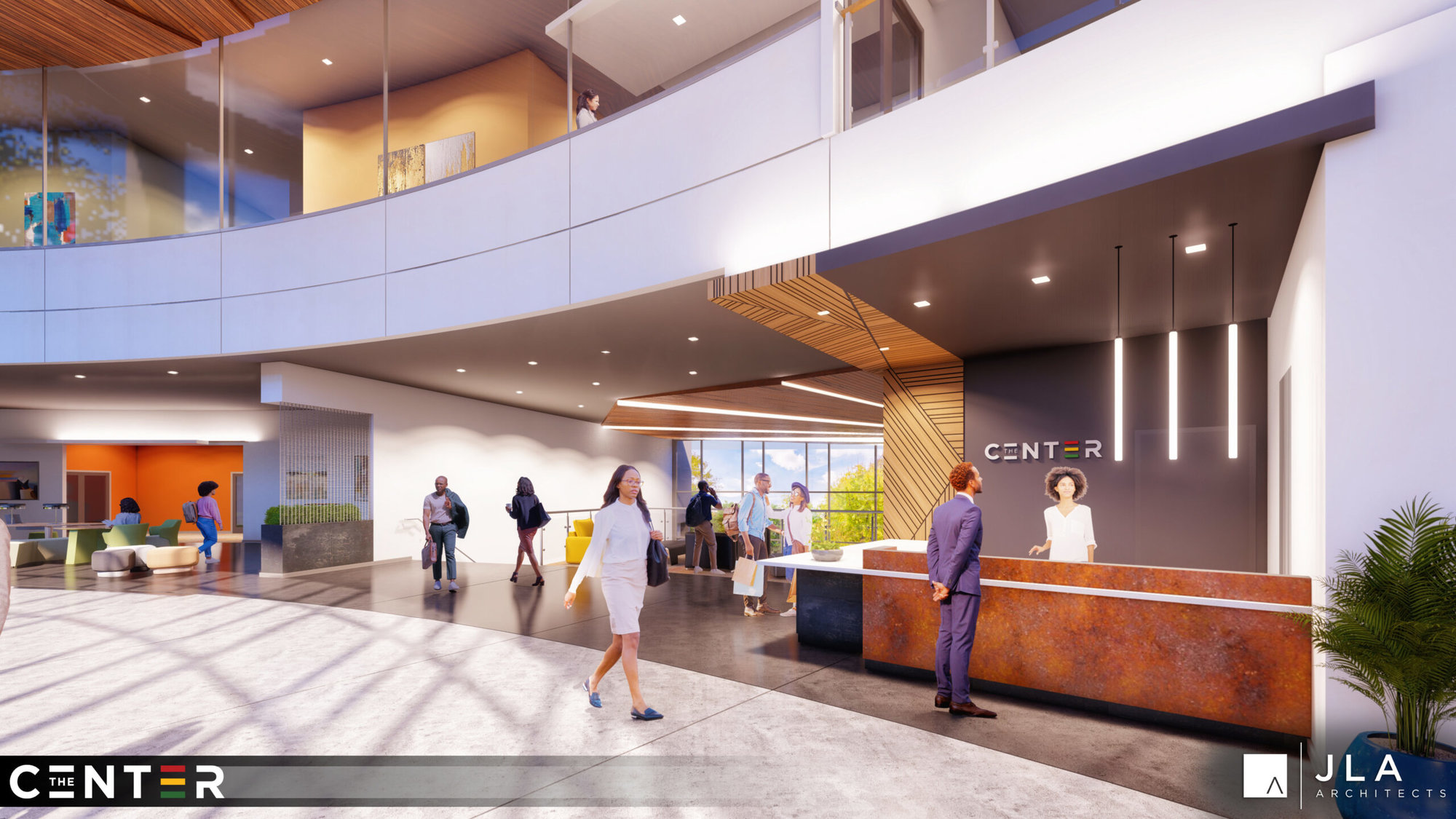
The Center will feature the following focus areas: health and wellness, leadership and innovation, performing and visual arts, and youth, seniors, and families. The Center plans to work with the Wisconsin Chamber Orchestra to offer music education, and kids will also have access to STEAM education and Wisconsin Black history. There will be an art gallery, recording studio, fitness room, kitchen, coworking, meeting spaces, and two performance spaces (a larger one for film and books festivals, lectures, and entertaining dignitaries, and a smaller one for experimental theater, retirement parties, and wedding receptions). In addition, there will be a coworking space and Center for Black Innovation and Leadership to invest in Black entrepreneurs as individuals “to develop that business acumen of seeing themselves as leaders and understanding that their leadership style can work here in Madison.”
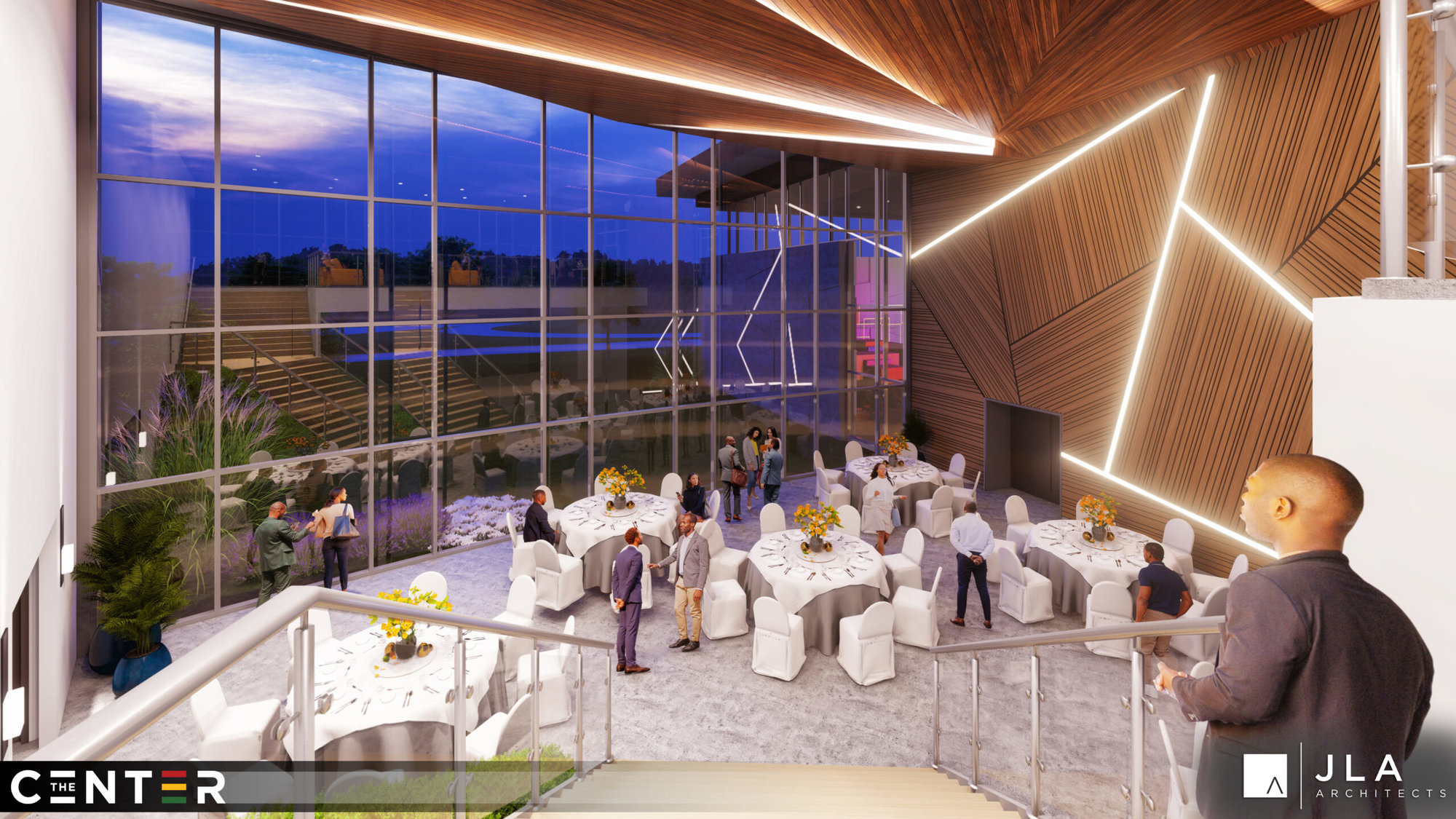
“When there's space to be safe, then you will create space to be brave. And I think Madison requires a sense of bravery. But there's not a lot of space that people go to where they feel, ‘I don't have to be filtered here. I don't have to code switch.’ We want to be a place that really invokes inspiration and innovation and then see where that takes people,” Gee said. “I love that there are spaces like the Black Business Hub that will incubate businesses, but The Center wants to incubate geniuses. We want to incubate innovators, and we want them to have a place to come and grow and be established and then watch what they do.”
To learn more and make a donation, visit theblackcenter.org.
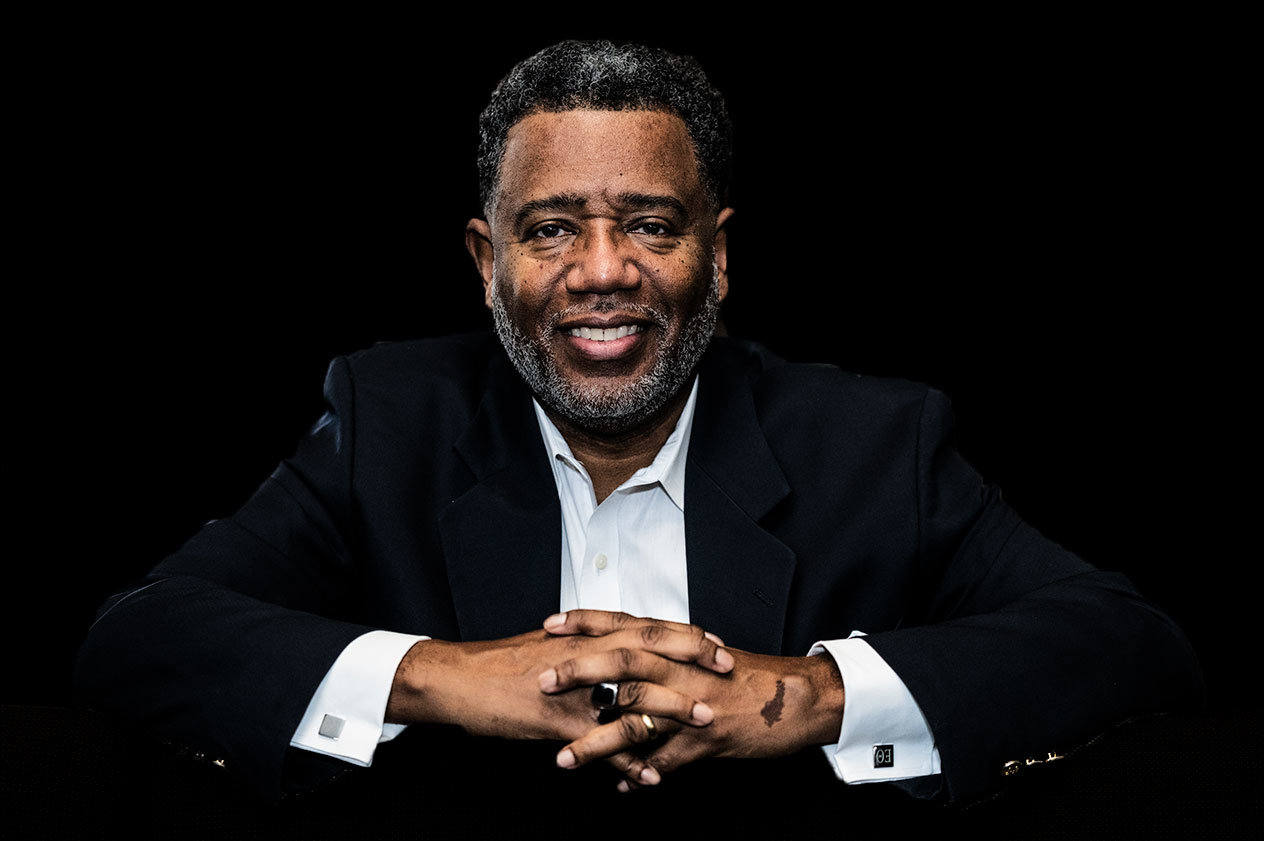
Q & A with the Rev. Dr. Alex Gee
What does it feel like to be so close to seeing The Center on the horizon?
“It feels wonderful. One of the byproducts of giving interviews like this is that it gives me a chance to pause. I think I'm so focused on getting to the finish line and raising all the dollars, but I don't always stop to smell the roses. It feels almost magical. It feels affirming. It feels comforting. It gives me a sense of hope. I feel that the community is listening because it hasn't always listened to influencers of color. But whether they listen or not, we know that this is how we heal ourselves and protect ourselves and develop the best of ourselves. We believe that culture is a passport to belonging. We believe that when we have the space to be ourselves and come together, we heal ourselves and each other. And if Madison wants a real vibrant and diverse community, we've got to do more than talk about race in new social circles. We've got to create a way for cultural and economic and innovative growth. And this is a great moment for Madison to become a truly great city for everyone. And I'm proud to be a part of that.”
Why is it meaningful that The Center, along with the new Centro Hispano and Urban League buildings, will be located on Madison’s South Side?
“This is historically a Black neighborhood. I grew up in South Madison, and I have lived, worked, or owned property in South Madison for the last half century. It was always diverse, but 53713 is one of the most diverse zip codes in the entire state of Wisconsin. It’s great that The Center will be in a historic place where many of our heroes and heroines worked and dreamed of an inclusive Madison – a better Madison. People like my mom came here because they believed that it would give a better opportunity to their children, and many found it but at a cost, and then others never found it. I think it's important to state that The Center will talk about Black excellence around Wisconsin and not just Madison. When we say Black, we mean African, Caribbean, Afro-Latino, and African American communities that have worked to make an indelible impression on the state of Wisconsin. The collective innovation that this community has in Black and brown people to bring such massive forward-thinking development ideas makes us the envy of the country. I can’t think of another midsize city that has this kind of brain power, cultural power, and fundraising power. Secondly, we’re in relationship with each other. I cheer on Karen Menéndez Coller (Centro Hispano) and Dr. Ruben Anthony, Jr. (Urban League of Greater Madison). We text each other; we know each other’s families; we appreciate and respect and like each other. The third thing is, we are not building these cultural and social enterprises so that working Black and brown people can be priced out of South Madison. We’re doing this to make people proud to be part of South Madison, not to make gentrification attractive to South Madison. I need the broader community to know we are doing what we’re doing to still make this home for the impacted communities.”
How will The Center impact Madisonians and Wisconsinites?
“I think that one of the reasons why Wisconsin struggles in this racial disparity between Blacks and whites has to do with the limited cultural exposure, particularly in Dane County. We just don't have it, and we shouldn't have to drive to Milwaukee or Chicago or the Twin Cities to find it. What we're building exists nowhere in the state of Wisconsin. We are building The Center in order to really make Madison feel like home to the Black community. Because when that happens, we stay, we invest, we take the jobs that we're offered, we keep them, we buy homes, perhaps we send our children to the university. But none of the DEI efforts of businesses or corporations are going to work if Black people keep leaving because this does not feel like home to them. You can tell that a community is growing and it’s vibrant if it has an arts, performance, and cultural district where patrons invest in it, because that’s where the story of that community and society is told. It’s where they gather to remember that we rose as a phoenix from the ashes and that this too shall pass. It’s about overcoming. It’s about the great story of triumph. What we're seeing in this project is a proliferation of Black people bringing Black thought and Black innovation to the table to strengthen the Black community, which will have a ripple and trickle effect that would benefit the entire community. We have no desire just to wall ourselves off. We can do that by leaving Madison; we can go to Dallas or Atlanta. I love the fact that Black people in this community still want to be a part of this community even though we don't always feel like the community wants us to be. And so this is a moment, because soon we're going to forget the Black innovators who shape this community, state, university, capital, and politics, and we're going to continue to lose talent that's Black. And we're going to raise white children in a homogenous society and claim that we are a world class city training world class leaders. And there's no way that we can be training world class leaders if we don't know how to talk to and understand our own neighbors. There's no way we understand the world if we don't understand people that are in our own classrooms or in our break rooms. So what we're doing is really a great gift to the state of Wisconsin, because we could take these talents anywhere and many of us do.”
You've had a tremendous amount of success in your professional life. Have you ever considered leaving Madison to take your talents elsewhere? What was it about Madison that kept you grounded here?
“I wanted to get out of Madison right after high school in 1981 when I was accepted at UW-Oshkosh to run track. And even then I thought, ‘but if the Black youth who know how to navigate Madison leave, who will teach the next generation?’ I’ve thought about leaving way more since writing Justified Anger because of the pushback. And then the more I got engaged with that work, it put me on a national platform and people started pursuing me with opportunities to work and live outside of Madison on the east coast or west coast. And I've thought about it, but every time I come back to the same thing: I don't think my work here is finished. But it's not because there aren't options. The people that are leaving Madison are the folks who have options. We can live in Seattle and still work for a Madison-based company, for example. Madison has a lot of competition for the Black talent that it has here in this community. We need to recognize that. We have this moment to continue to believe that there can be a full representation of the Wisconsin dream that we can be a forward-facing society like our state model, but none of these things are real if the Black community continues to be left behind. The Center is focused on what's beautiful and prolific in our community, not what's broken. And I need the broader community to recognize what time it is, and let's make this happen.”
